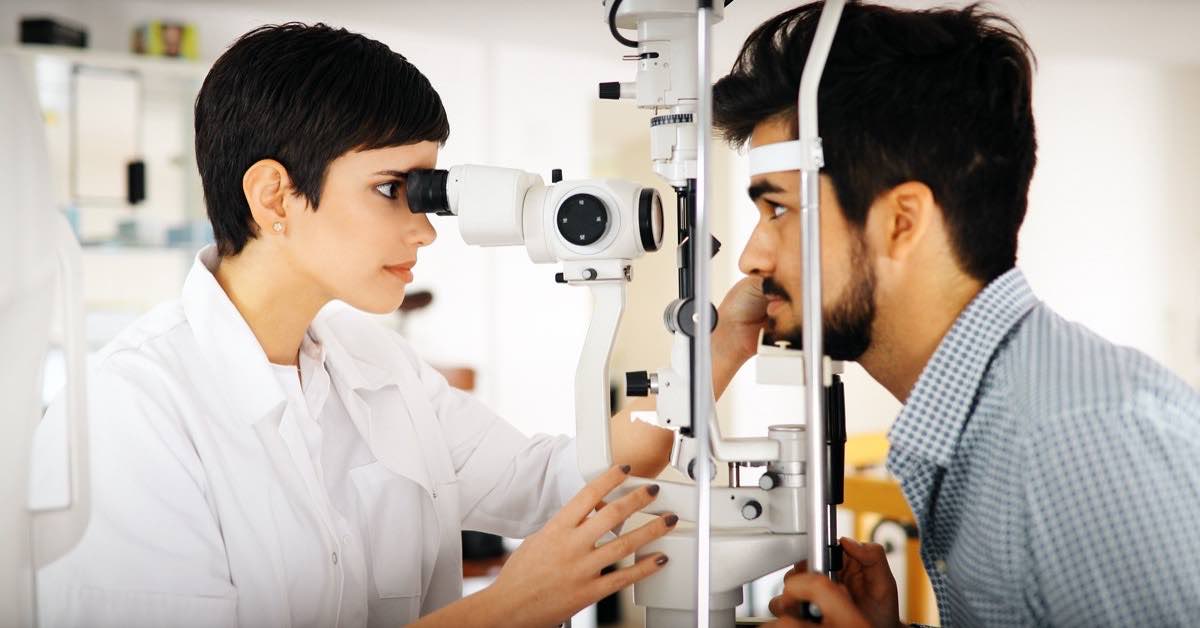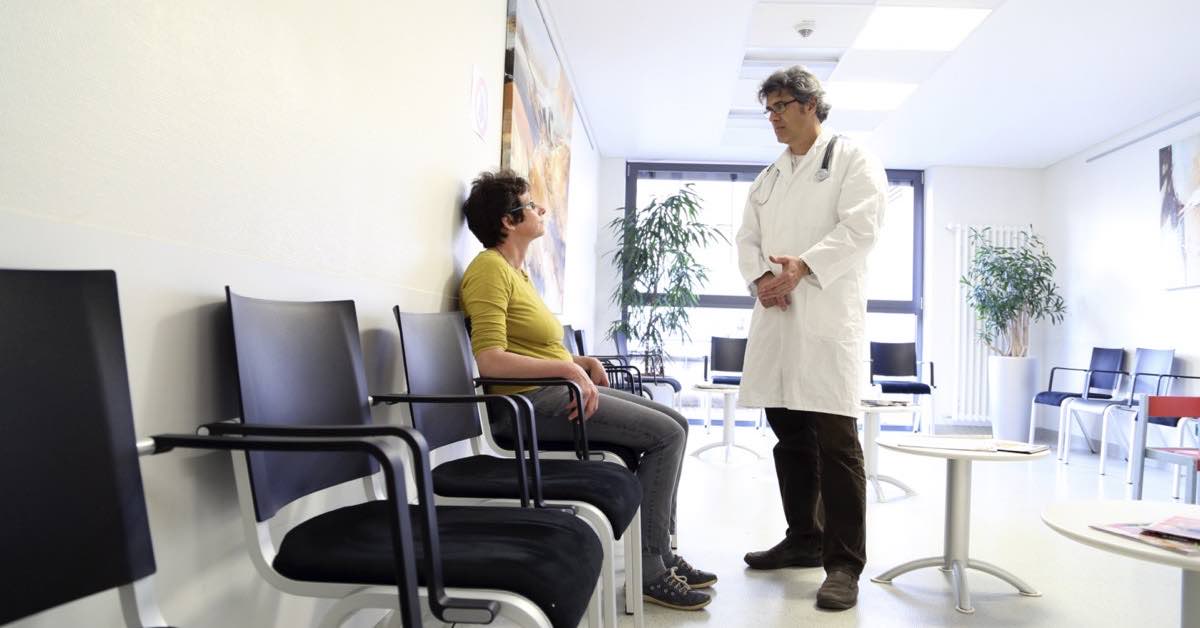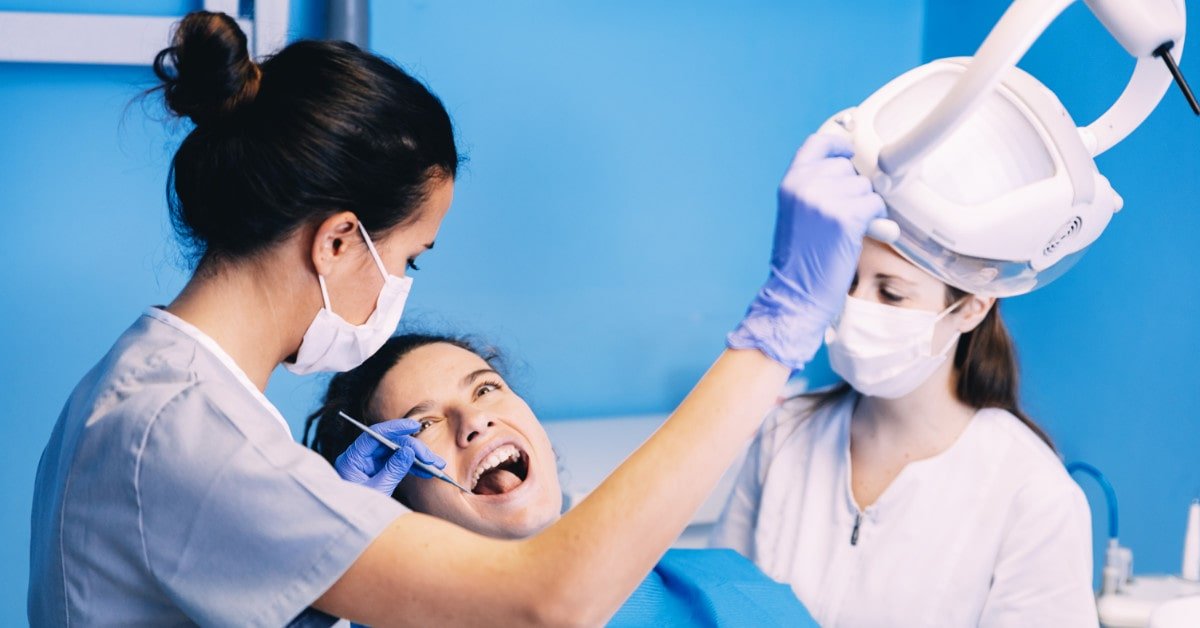What is Eye Care, and What Are the Different Types of Eye Doctors?
Eye care is the practice of preserving and restoring vision. There are many different types of eye doctors who specialise in various areas of eye care.

The first type of eye doctor is an ophthalmologist. This medical doctor specialises in diagnosing, preventing, and treating medical and surgical disorders of the eyes and visual system.
Ophthalmologists provide primary care for most eye diseases and comprehensive eye examinations to diagnose ocular diseases. They can also perform surgery on the eyes to correct refractive errors such as nearsightedness, farsightedness, or astigmatism.
The second type of eye doctor is an optometrist. An optometrist is a health professional who diagnoses and treats common vision problems like nearsightedness, farsightedness, and cataracts. Optometrists often prescribe corrective lenses to help those with vision problems but do not perform eye surgery.
The third type of eye doctor is an optician or eyeglass maker who makes prescription lenses for people who wear glasses or contact lenses.
Eye Specialists in Fortitude Valley
Valley Eye Specialists
Ophthalmologists at Valley Eye Specialists strive to provide exceptional ophthalmic care for infants, children, and adults. Team members pride themselves on delivering timely appointments for routine and urgent care when necessary as a highly experienced and highly qualified team. Located 51 Ballow Street in the Valley.
View the website for more details valleyeye.com.au
Eyeporium
It’s essential to protect your eyesight and maintain good eye health. Eyeporium is committed to providing the best service to every customer. In addition to helping you meet your vision needs, they strive to help you look and feel fantastic. The clinic offers bulk billing, comprehensive eye tests, and free consultations for contact lenses.
Located 86 Brookes by appointment only, or visit the Eyeporium website for more information.
Vson Laser Vision Specialists
Are you tired of missing out because you can’t see clearly without glasses or contact lenses? Are you unable to look your best because of your glasses? You know how frustrating it is to have glasses or contacts that stop you from doing what you want. Make an informed decision about laser eye surgery. They offer a free assessment in Brisbane.
Visit the clinic in Fortitude Valley at 825 Ann St or read more on the Vson website.
Health Hub
Over 30 years ago, their optical practice began providing quality eye care using specialised equipment to monitor your eye health. Not only do they care about the health of your eyes, but they also want you to look good. The Health Hub offers more than 2,000 frames and brand-name sunglasses, catering to various preferences, styles, and budgets. Also available are optical accessories and eye care solutions such as contact lenses.
In addition to checking for ocular disease, cataracts, and glaucoma, their optometrists use specialised retinal imaging equipment. There is a bulk billing option for eye tests.
Located in the Valley at 438 St Pauls Terrace. Also, view more information on the website.
Optiko
Whatever your taste, Optiko will be able to help you find what you are looking for. In addition to our eye examinations using the latest technology, Optiko offers no compromises regarding your time.
They are conveniently located at 19 James St in Fortitude Valley. Also, see the Optiko website for further details.
Also see…
Bailey Nelson Optometrist
Shop 9/65 James St
See the Bailey Nelson Optometrist website for more details.
Hart Fanning & Robinson Optometrists
General Optometry Services. Dispensing optometrist for the Spectacle Supply Scheme (SSS). Located 33/230 Brunswick St. You can see their website here.

Optometrist vs Ophthalmologist
Optometrists are eye care professionals who diagnose, treat, and manage eye and vision disorders. They can prescribe glasses and contact lenses, treat eye diseases, and counsel on preventive health care.
Ophthalmologists are medical doctors who specialise in the medical and surgical care of the eyes. They can diagnose diseases of the eye and its adnexa, manage ongoing eye diseases such as glaucoma or cataracts, and perform surgery to remove cataracts or tumours from the eye Optometrists are not qualified to perform surgery on your eyes.
Ophthalmologists have surgical training that is not available to optometrists. They also have access to various types of equipment that optometrists don’t have access to, such as microscopes for examining cells in the eye.
Pediatric Eye Doctors and How to Choose One for Your Child’s Eye Needs
Pediatric eye doctors are more than just eye doctors. They are pediatric ophthalmologists, pediatric optometrists, and pediatric ocularists.
This article will guide you in choosing a pediatric eye doctor for your child’s eye needs. It will provide guidelines on selecting the best one for your child’s age group and what to look for in a good doctor.
Eye Doctor Tips for Your Eyes That Will Keep Them Healthy & Happy
Eye doctors are the experts in taking care of your eyes, and they have some handy tips that can help you keep your eye health in check.
- Take care of your eyes by wearing sunglasses outside, especially during the day. Sunglasses protect your eyes from the sun and prevent them from becoming dry or irritated.
- Wear a hat if you are out for long periods because it will prevent UV rays from damaging your eyes.
- Look for symptoms of eye disease such as red or dry eye, blurry vision, and light sensitivity before visiting an ophthalmologist.
- Dry eyes can be relieved by artificial tears or humidifying the air around you.
- Blurry vision can be caused by your eyelids not having enough lubrication from tears. It would help if you treated it with artificial tears, lubricating eye drops, or artificial lubricating eye drops like Visine.
- You can treat light sensitivity with sunglasses and additional lighting in your home.
Looking for other medical professionals in Fortitude Valley? See the following pages…
- Doctors Fortitude Valley – Medical Clinics Providing Quality Health Care
- Dentist Fortitude Valley – Local Dental Care Services
Eye Examinations and What You Should Know Before Your Next Visit
What is a Comprehensive Eye Examination?
A comprehensive eye examination is a series of tests that an eye doctor will use to identify and diagnose potential eye diseases. A thorough eye examination includes:
- A detailed medical history about the patient’s vision and general health
- An in-depth visual field test to evaluate the peripheral vision, central vision, and side vision
- A dilated exam of the retina to detect any changes or abnormalities
- Testing for refractive errors, including nearsightedness and farsightedness
- Examining the eyes for signs of glaucoma or other eye diseases
What are the Different Types of Eye Exams Available?
The types of eye exams that are available depend on who is giving them. Ophthalmologists and optometrists provide comprehensive eye examinations but have different approaches.
Ophthalmologists are medical doctors who specialise in diagnosing and treating diseases and conditions related to the eyes. They can diagnose a variety of eye conditions and prescribe treatments.
Optometrists, on the other hand, are not medical doctors, but they can examine your eyes to determine if you need glasses or different types of vision correction.
How Illuminating are Fluorescent Lights for My Eyes?
Fluorescent lights have been used to light homes, offices, and commercial buildings for decades. However, some people are concerned about the effects of these lights on their eyes.
Is this a concern for you? What is the best way to find out? The best way to find out if fluorescent lights harm your eyes is by consulting your eye doctor.
This article will help you understand fluorescent lights and how they may affect your vision health.
How Important is the Order I Follow Instructions in an Eye Exam?
The order in which you follow instructions in an eye exam is essential because it will determine if you have a problem with your vision or not.
The first step to do is to read the instructions. Next, you should look at the chart and then cover your left eye with one hand. After that, you should look at the chart again and uncover your left eye.
Repeat these steps with the right eye and then compare the results of both sides to see if they differ. If they are not different, then you don’t need glasses for that distance.
The Importance of Having Regular Eye Checks at a Specialist’s Office, Especially if You Have a Family History of Glaucoma or Other Serious Conditions
Glaucoma is a condition that can cause damage to the optic nerve, which results in vision loss. There are two types of glaucoma: open-angle and closed-angle.
Open-angle glaucoma is more common and often develops gradually over time, while closed-angle glaucoma typically occurs suddenly.
Open-angle glaucoma tends to follow a family history, passed down through generations. It usually starts with mild symptoms and worsens over time, but it can also start with more severe symptoms without warning.
Closed-angle glaucoma usually occurs due to an injury or infection of the eye or as a side effect of medication or other health conditions such as diabetes.
What is an Eye Specialist?
Eye specialists are also called ophthalmologists, optometrists and opticians. They must complete a four-year undergraduate degree and four years of medical school.
After that, they must complete at least three years of residency training before being licensed as an eye specialist.
What is the Difference Between an Optometrist and an Ophthalmologist?
An optometrist, also known as an eye doctor, is a medical professional specialising in diagnosing and treating eye diseases. An ophthalmologist is a medical doctor specialising in diagnosing and treating eye diseases.
An ophthalmologist has completed four years of pre-med undergraduate study, four years of medical school, one year of internship and three to seven years of residency training in ophthalmology.
An optometrist has completed four years of undergraduate study in pre-optometry (or equivalent) and three to six years of college or university education in optometry.
An ophthalmologist is qualified to diagnose any vision problem affecting your eyesight, while an optometrist can only diagnose issues affecting your ability to see things.
How Can Fortitude Valley Eye Specialists Help with 5 Major Eyesight Problems?
Eye specialists are medical professionals who diagnose, treat and manage eye diseases. They also provide vision care services. They can help with five major eyesight problems: nearsightedness, farsightedness, astigmatism, presbyopia and strabismus.
A specialist may prescribe eyeglasses or contact lenses to correct vision problems like nearsightedness or farsightedness. They may also recommend surgery to correct astigmatism or presbyopia.
How to Choose the Best Pair of Prescription Glasses For Your Specific Needs
Choosing the best prescription glasses for your specific needs can be difficult. There are many factors to consider when selecting the perfect pair. Finding a pair that will suit your lifestyle and look good on you is essential.
There are many different types of frames, lens options, and materials to choose from. You may have heard about some of these terms before, but you may not know what they mean or how they affect your vision and comfort.
This guide will help you understand what these terms mean to find the best prescription glasses for your needs.
The first step in choosing the best prescription glasses is determining what type of frame you want: metal, plastic, or acetate?
Metal frames are usually more expensive and heavier than plastic frames, but they last longer. Plastic frames are often cheaper and lighter than metal frames, but they may break after a few months of use.
Acetate frames are lightweight, comfortable, and less expensive than other types of frames. Three basic lens options are single vision, progressive, or bifocals.
You can use single vision lenses for people who only need one prescription. Progressive lenses are designed for people who require a stronger prescription. Bifocals allow you to see everything before you without wearing your glasses.
You can also find different materials that lenses are made from. Some materials have more reflecting power than others and are therefore better for driving in the sun or reading at night.




